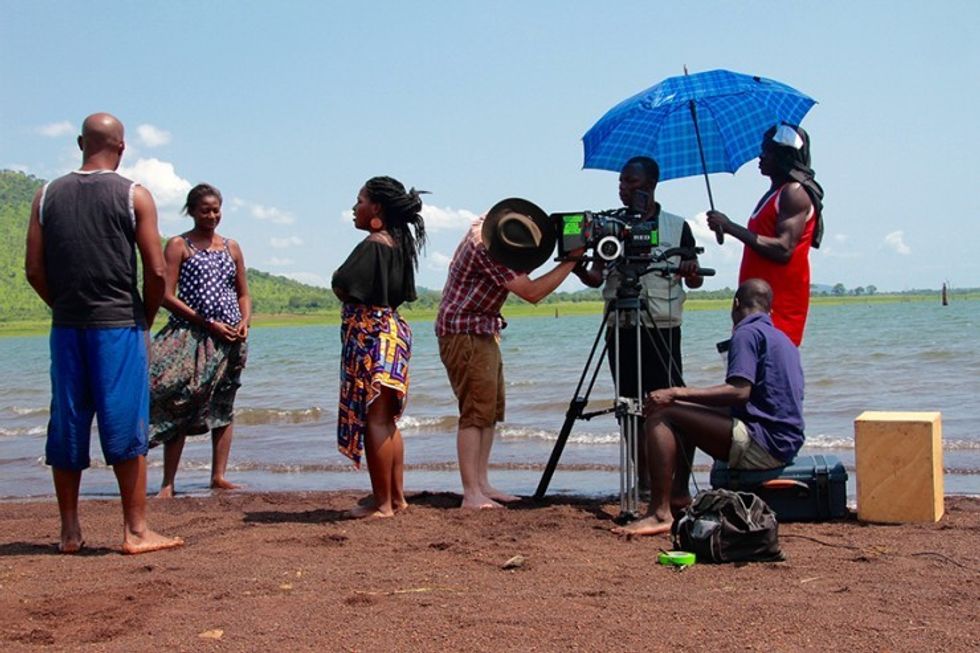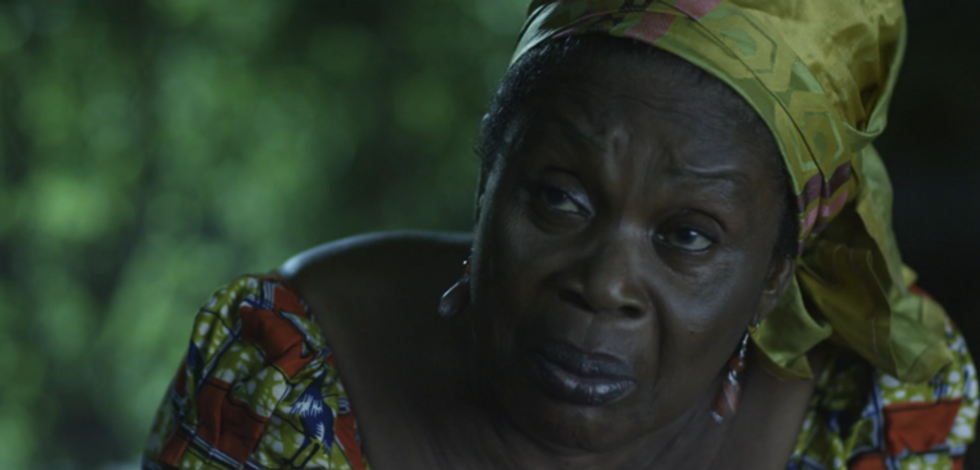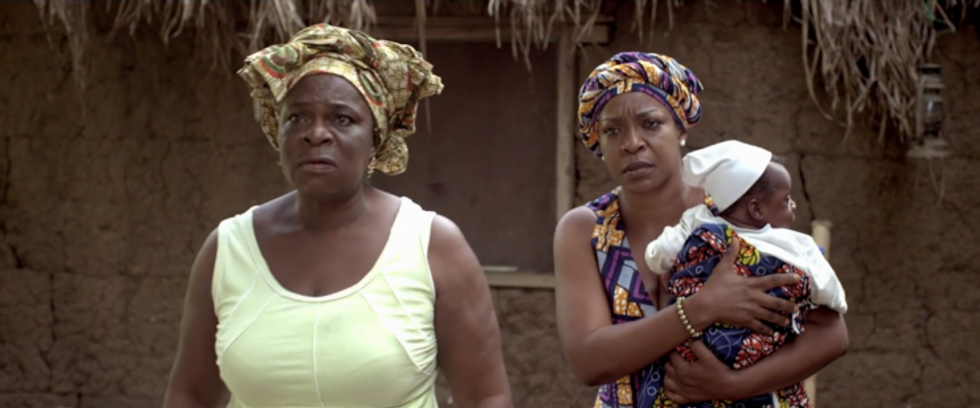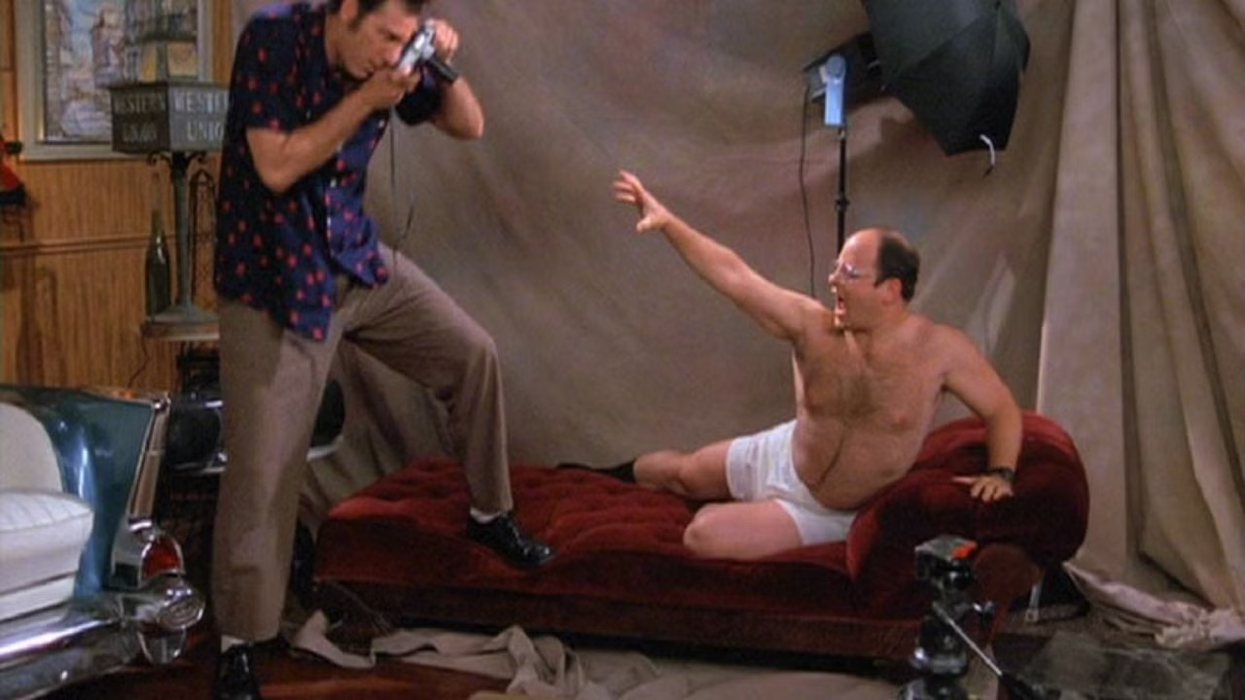How Priscilla Anany Overcame the Shocking Challenges of Making 'Children of the Mountain'
How can you use a fictional story to teach your audience about critical issues, while keeping them engrossed in the narrative?
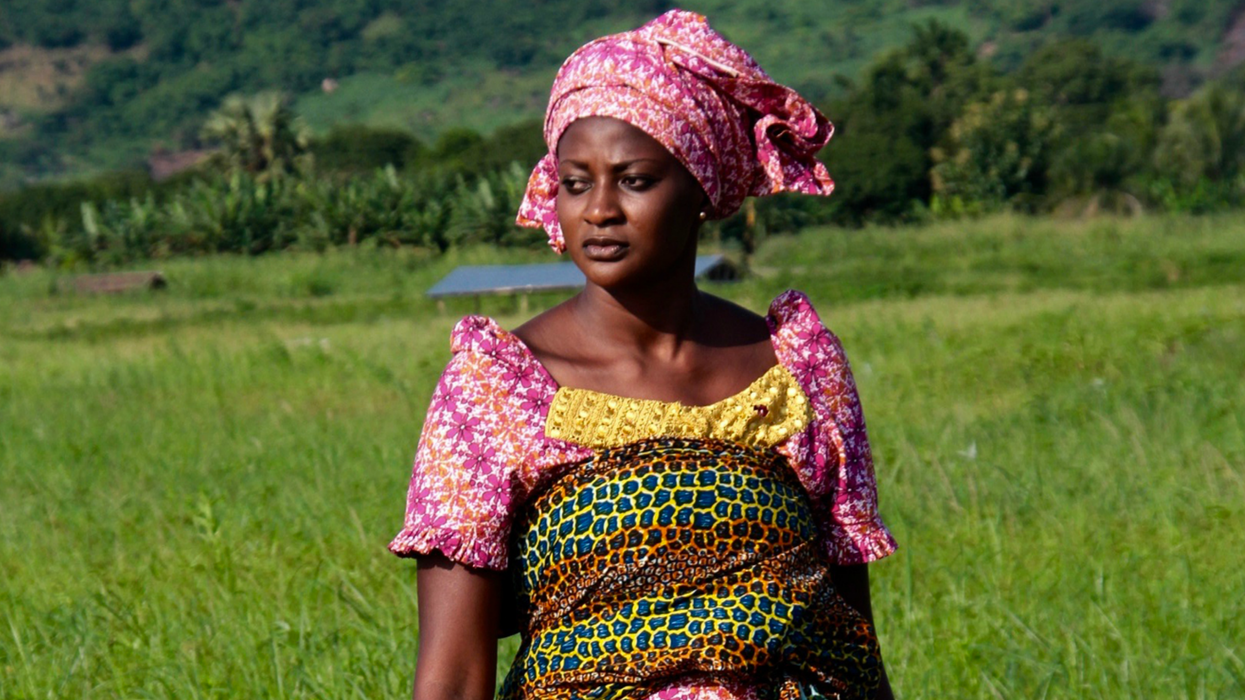
Ghanaian writer-director Priscilla Anany knows about that balance, as displayed in her debut feature Children of the Mountain. The film follows Essuman (Rukiyat Masud), a young mother in Ghana’s capital of Accra whose son is born with a cleft palate and later diagnosed with cerebral palsy. In Ghana, children with cleft lips are stigmatized, and sometimes even sacrificed to tribal gods. We watch Essuman struggle and suffer, pursuing many dubious spiritual remedies while family members hint the child would be better off abandoned. Ultimately, salvation arrives in the form of the Graft Foundation, a real-life nonprofit offering deformity surgeries to low-income Ghanaians.
Ahead of the film’s April 17 world premiere at the Tribeca Film Festival, NFS spoke with Anany about telling difficult stories, “casting” kids with medical defects and convincing her mom to help fund her film.
"Every film school complains that they don’t really teach you how to raise money. And so I had to learn that the hard way. I’m still learning."
NFS: What influences did you take from your Ghanaian education and your American background in terms of how you approached the film?
Anany: When I was in Ghana I started going to film school, and my teacher was actually American. When I was in film school there, I was already given a little of the American system, and that actually motivated me. I was like, well, I want to come to the U.S. and get the full U.S. education. We were trained under the Hollywood studio system, which is not the independent world at all. And it’s quite difficult–it had its cons and pros. For instance, while we were in school we were always given money to make our films: your projects had to be greenlit and you get money. And that’s not the real world for indie filmmakers. I got a good education. I learned everything I could possibly learn about filmmaking–our professors were industry professionals. Many of them came from Hollywood, which was amazing–if I was in Ghana I wasn’t going to get all of that.
Every film school complains that they don’t really teach you how to raise money. And so I had to learn that the hard way. I’m still learning.
NFS: Did you work with only Ghanaian financing on Children of the Mountain or were you getting financing from various international sources?
Anany: It was various international sources, but I would say [primarily] U.S. and Ghana. I got some grant money... but then I had a lot of help from Ghana, mostly my family, my mother. She had sold her house and I basically begged her to give me some money out of that, to make my movie. And she gave me some money. So that was the biggest part–that was really big, the fact that my mother just sold her house and gave me money…
When I got out of film school, she encouraged me to go back to grad school, to get a degree in something else other than film, so I could secure a job that would take care of me. She was very, very worried about me. I went to NYU, I have a masters in corporate communications and public relations. But I graduated in 2014 and I haven’t even used the degree until now. I don’t even know how I was able to go through grad school, because I kept focusing on my film while all the time that I was studying something else. But I made it through and I’m glad I was focusing on that. The downside is I have a lot of student loans waiting for me.
NFS: Did your mother sell her house to help pay for your film or was she already planning to do that?
Anany: It all kind of happened at the same time, because I knew she was selling her house and I was also in the process [of making a film]. So I said, "OK, can you help me?" I needed help.
NFS: Your mother certainly believes in you.
Anany: Well, I mean, not from the beginning. You know, any parent is concerned about their kid, especially when you go into an industry that’s so competitive and difficult. She wanted to know how I was going to earn a living to take care of myself.
NFS: In the film, Essuman’s child is born with these defects, she gives all of her money to this fake healer, and she’s assaulted by a priest. It was very painful to watch. It must be a fine line for you to walk as a filmmaker to put your character through all this.
Anany: In Ghana, in most West African countries, when you try hospitals, when a person is desperate for anything, financial issues, people go to churches. Church is a big business. And pastors take advantage of a lot of people who come. A lot of people who live in poverty, they’ll come to them and they’ll put the little money that they have in the collection. So people try to find solutions to their problems and they try pastors, they try churches, shamans, and all of that. I know that when people go to hospitals and they don’t find answers, they will try the traditional routes…
I thought it was very important to show all of that through the journey that Essuman goes through. Because even my own mother, I know that there were times when she went to see a pastor to pray for her.
"[When casting] we met a couple of new mothers with kids that had cleft lips. One mother said, "Call me and we’ll see." Three days later she called me back and said, 'Oh, my child died, so, sorry.'"
NFS: You’re promoting the Graft Foundation in the film. Did you know from the start of production that you wanted to get their work involved in the film?
Anany: In the script it was supposed to be the Mercy Ship that was supposed to come. They’re American and European doctors, and they come on this ship, perform surgeries for children with deformities. But then we found the Graft Foundation when we were casting Jessica, the little girl who plays the little boy in the film, the three-year-old. We went to a couple of hospitals–every few weeks, people from the remote areas bring their children. We met a couple of new mothers with kids that had cleft lips, and none of them were really interested in working with us. One mother, though, said, "Call me and we’ll see." And I called her once we got back to Accra. Three days later she called me back and said, “Oh, my child died, so, sorry.”…
The same doctor [from the hospital] recommended another friend who works at a military hospital, Dr. [Kwame] Abrokwaa[-Yankyera], he’s the one who actually started the Graft Foundation. And they offer free surgeries–the surgery itself is free but once you come to the hospital you still have to pay the hospital bills and if they need to do any tests prior to this surgery you have to pay for all of that yourself. So he pulled up his list [and we found Jessica]. And they said, “Well, we’d prefer you using Graft Foundation instead of the Mercy Ship.” I said, “Absolutely, because you’re helping us!”
NFS: You had to do this casting call for a baby with a cleft lip.
Anany: Yeah, and I had to go look for them, they weren’t going to come to me.
"I explained to [my DP], 'It’s going to be tough because we’re not just going to be shooting in the city–we’re going to be in the village, and there’s going to be bugs and mosquitoes. Are you ready to do this?' He said, 'Heck, yeah.'"
NFS: Your cast is Ghanaian, and they speak in Twi and Ewe, but your cinematographer is American. How did that affect on-set communication?
Anany: The cinematographer is Eli Wallace Johansson. We went to film school together in North Carolina and he was the best in our class. So I always knew I was going to work with him. When I started talking to him about the project, I explained to him, “It’s going to be tough because we’re not just going to be shooting in the city–we’re going to be in the village, and there’s going to be bugs and mosquitoes. It’s going to be tough. Are you ready to do this?” He said, “Heck, yeah.”
I let him know, these are the expectations, this is what’s going to happen. And the way filmmaking is done in Ghana is quite different, the work ethics and everything. You ever heard of Ghanaian Time? When you tell someone to show up at this time and they show up two hours later? They always say, “I’m coming, I’m coming, I’m coming,” and they’re not coming. So I told him, “OK, here are the things to expect, and it’s going to be difficult, but you have to stick it out.” He said, “Sure, I’m up for it.” And he did amazing. On day one of the shoot, he was just training people–he was saying, “Here, this is how you handle a lens, this is how you do this.” He was more of a teacher.
NFS: How did you conquer Ghanaian time?
Anany: I fired a couple of people. [laughs] I was producing this as well–I knew we didn’t have the time and luxury, and I had to be very firm. I work as a filmmaker, but I also work as a fixer, a line producer if you may. So basically if you are in any part of the world and you want to shoot a film project or any media project in Africa, I try to convince you to come to West Africa, to come to Ghana, and I set you up completely with all the locations… Ghana is a great place to shoot. Except for a desert, you can find everything else.
I try to get people to come and shoot there and I do their casting, I hire crew, I get their equipment there, I set them up completely… I work with some of these people, so they know how I work. They know that we’re working on American time, not Ghanaian time. People have higher expectations, they know I work with higher standards on my shoot. So I think they behave. I always use one person to set an example and then everybody falls in line.
"People have higher expectations, they know I work with higher standards on my shoot. So I think they behave. I always use one person to set an example and then everybody falls in line."
NFS: I recently spoke to some film directors who had made an independent film in Ghana and they said that to get the high production values and professionalism they were after, they had to basically work outside of the mainstream Ghanaian film industry. Did you also find that to be the case?
Anany: That is quite true. I’m sure you’ve seen movies from Ghana and Nigeria and you see how–I mean, they’re trying, and some have good stories, [but] the execution is not always the best. And they’re just used to doing it that way. So if you go in and say, “I want to do it like this,” they don’t understand and they think you’re trying to hustle them. But there are other people who went to NFTI, the National Film and Television Institute, and they understand filmmaking on a different and higher level. But they don’t always work with those same people. So you have to go and find those people. Some of my clients bring crew from the U.S. and maybe European countries. But I always say, “OK, bring your D.P. and maybe your first A.D… but we’ll sort out everything else. It’s true, you cannot work with those in the mainstream. You have to find people outside of that.
To learn more about Children of the Mountain, visit its Tribeca profile page.
Be sure to check back for more coverage of Tribeca 2016.
